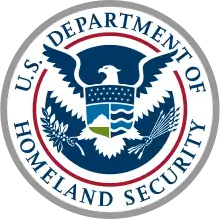FEMA Public Assistance
The Federal Emergency Management Agency'[1]s (FEMA) Public Assistance Program provides aid in the wake of a major disaster to state and local governments, and to certain non-profits, to help communities in their recovery efforts.[2]
The Public Assistance Program provides federal disaster grant assistance for debris removal, emergency protective measures, and the repair, replacement, or restoration of disaster-damaged property. The Public Assistance Program is meant to supplement any federal disaster grant assistance that a business or organization has already received.[3] The Public Assistance, or PA Program, is based on a partnership between FEMA, State, and local officials. The federal share of assistance should be less than 75% of the eligible cost of emergency efforts and restoration.[4] The remaining funds are generally allocated by the state government agencies and are distributed amongst eligible applicants.[5]
Applicant eligibility criteria
In order to receive a Public Assistance Grant, the applicant must register within sixty days of the disaster. The applicant must first be deemed eligible to apply for FEMA Public Assistance.[6] Those eligible include: state government agencies, local governments, federally recognized Indian tribes, and private non-profit organizations.[7]
Facility eligibility criteria
For a facility to be eligible for FEMA Public Assistance, it must be located in a designated disaster area and be under the legal responsibility of an eligible applicant. The facility should have been in active use at the time of the disaster; and open to the general public.[8]
Types of work covered
The FEMA Public Assistance Grant Program can only be applied to two types of disaster recovery work. The first is emergency work – this includes the debris removal and the preventative measures taken to secure the property and prevent further damage to the property and to public health. The second is permanent work – which covers the measures needed to restore, or replace, the property.[9]
Grant application process
The application processes is somewhat lengthy, and can include the following steps:[10]
- A preliminary damage assessment from which an immediate needs funding and expedited payments are derived
- Applicants’ Briefing where applicants receive and complete a Request for Public Assistance form
- In the event of a successful Request for Public Assistance, the applicant is assigned a public assistance coordinator
- The next phase is an introductory meeting, which is composed of the applicant and their public assistance coordinator
- The applicant's specific needs will be identified and cost estimates will be derived through the project formulation process
- Cost estimates for small projects that have been previously prepared are confirmed through a standardized validation process
- And finally if eligible, FEMA approves and processes funding for the disaster recovery project[11]
References
- "Home | FEMA.gov". www.fema.gov. Retrieved 2021-01-11.
- FEMA Public Assistance Public Assistance Grant Program Archived 2010-06-29 at the Wayback Machine
- "Disaster Recovery Programs". American Planning Association. Retrieved 2021-01-11.
- "Disaster Recovery Programs". American Planning Association. Retrieved 2021-01-11.
- Hawaii State Civil Defense Public Assistance Archived 2007-07-02 at the Wayback Machine
- emilms.fema.gov https://emilms.fema.gov/IS1005/groups/115.html. Retrieved 2021-01-11. Missing or empty
|title=(help) - "Determining Eligibility: Methods for presenting disaster-related costs to FEMA to obtain eligibility". Disaster Recovery Today. Adjusters International.
- "What You Need to Know About FEMA Public Assistance Program Funding". BDO. Retrieved 2021-01-11.
- "Public Safety - Emergency Management - Recovery-Public-Assistance-Program". discover.pbcgov.org. Retrieved 2021-01-11.
- FEMA Public Assistance Application Process Archived 2010-07-23 at the Wayback Machine
- "Public Safety - Emergency Management - Recovery-Public-Assistance-Program". discover.pbcgov.org. Retrieved 2021-01-11.
